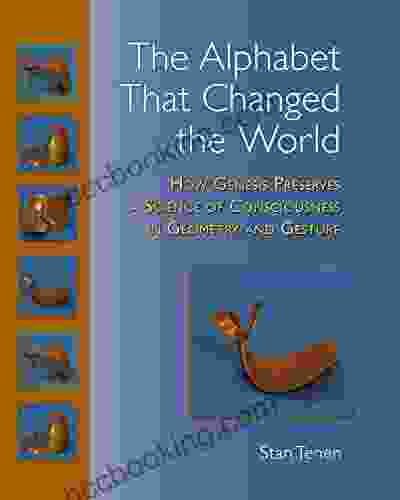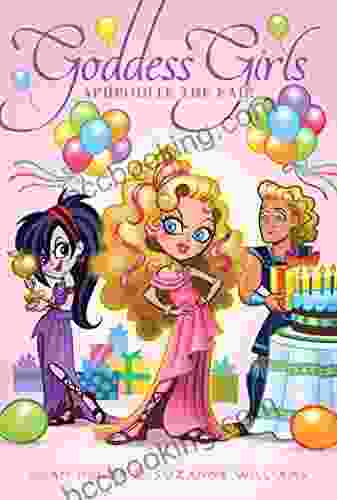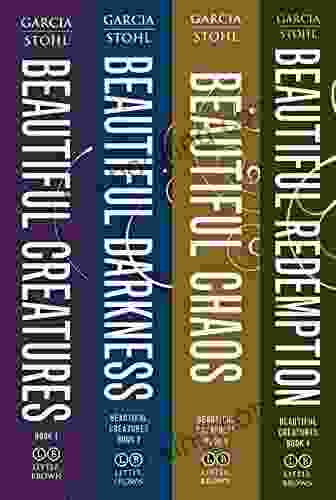The Alphabet That Changed the World: Unlocking the Secrets of Ancient Egypt

4.6 out of 5
| Language | : | English |
| File size | : | 34070 KB |
| Text-to-Speech | : | Enabled |
| Screen Reader | : | Supported |
| Enhanced typesetting | : | Enabled |
| Print length | : | 549 pages |
In the vast and enigmatic realm of ancient civilizations, there lies a profound secret that has shaped the tapestry of human history – the alphabet.
Emerging from the sands of time in the fertile lands of Ancient Egypt, this ingenious system of symbols unlocked the power of communication, fueled the growth of knowledge, and laid the foundation for the advancement of human civilization. But the story of the alphabet is far more captivating than mere letters on a page. It is a tale of discovery, ingenuity, and the enduring power of human expression.
The Dawn of Writing: Hieroglyphs and the Birth of the Alphabet
In the bustling city of Memphis, amidst the towering pyramids and opulent temples, scribes meticulously carved intricate symbols into stone tablets and papyrus scrolls. These were the hieroglyphs, the sacred script of the ancient Egyptians, a language of images that captured the essence of their world.
Hieroglyphs were more than mere representations of objects or ideas; they held a deeper significance, embodying the divine power of the pharaohs, the wisdom of the gods, and the fabric of Egyptian society. As the need for a more efficient system of communication grew, the hieroglyphic script evolved into a simpler and more accessible form known as hieratic, which scribes used for administrative and literary purposes.
From Hieratic to Alphabetic: The Genius of the Ancient Egyptians
Around 2000 BC, in the bustling city of Byblos on the eastern shores of the Mediterranean, a remarkable transformation was taking place. Traders and scribes from various regions began to adopt and adapt the Egyptian hieratic script, modifying it to suit their own languages.
Over time, these adaptations gave rise to a new and revolutionary writing system – the alphabet. Instead of representing whole words or syllables, the alphabetic symbols represented individual sounds. This ingenious simplification made writing and communication accessible to a wider audience beyond the elite class of scribes.
The Phoenician Alphabet: Trading Ideas, Spreading Knowledge
The Phoenicians, a maritime people renowned for their trading prowess, played a pivotal role in the dissemination of the alphabet. As they sailed across the Mediterranean, they carried with them their knowledge of this revolutionary writing system, introducing it to distant lands.
From Greece to Italy, from Carthage to Spain, the Phoenician alphabet found fertile ground, giving rise to variations and adaptations that would eventually shape the writing systems of much of the Western world. The Greek alphabet, with its distinctive letters, vowels, and consonants, laid the foundation for languages such as English, French, and Russian.
The Aramaic Alphabet: A Bridge Between East and West
In the eastern regions of the ancient world, another branch of the alphabetic family emerged – the Aramaic alphabet. Originating in the fertile lands of Mesopotamia, Aramaic became the lingua franca of the Middle East, a language of diplomacy, commerce, and religious texts.
The Aramaic alphabet played a pivotal role in the spread of knowledge and ideas, facilitating communication between diverse cultures and civilizations. It became the script for the Hebrew Bible and later influenced the development of the Arabic and Persian alphabets.
The Enduring Legacy of the Ancient Alphabet
The alphabet that emerged from the sands of Ancient Egypt has had a profound and enduring impact on human civilization. It has enabled the preservation and transmission of knowledge across generations, facilitated the exchange of ideas, and fueled the growth of literature, philosophy, and science.
From the ancient pyramids to the modern digital age, the alphabet remains an indispensable tool of communication, connecting people across time and space, unlocking the treasures of human wisdom, and shaping the destiny of our world.
The alphabet that changed the world is not merely a collection of letters; it is a testament to the ingenuity and creativity of our ancestors, a symbol of human progress, and a gateway to the vast realm of knowledge.
Through its captivating journey from hieroglyphs to alphabetic symbols, the alphabet has empowered countless individuals, transformed societies, and left an indelible mark on the fabric of human history. It is a legacy that continues to inspire and shape our world today, connecting us to the past and unlocking the boundless possibilities of the future.
4.6 out of 5
| Language | : | English |
| File size | : | 34070 KB |
| Text-to-Speech | : | Enabled |
| Screen Reader | : | Supported |
| Enhanced typesetting | : | Enabled |
| Print length | : | 549 pages |
Do you want to contribute by writing guest posts on this blog?
Please contact us and send us a resume of previous articles that you have written.
 Book
Book Novel
Novel Page
Page Chapter
Chapter Text
Text Story
Story Genre
Genre Reader
Reader Library
Library Paperback
Paperback E-book
E-book Magazine
Magazine Newspaper
Newspaper Paragraph
Paragraph Sentence
Sentence Bookmark
Bookmark Shelf
Shelf Glossary
Glossary Bibliography
Bibliography Foreword
Foreword Preface
Preface Synopsis
Synopsis Annotation
Annotation Footnote
Footnote Manuscript
Manuscript Scroll
Scroll Codex
Codex Tome
Tome Bestseller
Bestseller Classics
Classics Library card
Library card Narrative
Narrative Biography
Biography Autobiography
Autobiography Memoir
Memoir Reference
Reference Encyclopedia
Encyclopedia Yellowlees Douglas
Yellowlees Douglas Tiece
Tiece Ted Kloski
Ted Kloski Wilbur Smith
Wilbur Smith Simon Mann
Simon Mann Warren Hansen
Warren Hansen Stephen Kuusisto
Stephen Kuusisto Virginia Willis
Virginia Willis Hikaru Miyoshi
Hikaru Miyoshi Sherryl Woods
Sherryl Woods Jenn Bennett
Jenn Bennett Weijian Shan
Weijian Shan T Ann Marie
T Ann Marie Veronica Jeans
Veronica Jeans Stuart Laing
Stuart Laing Kinsey Phifer
Kinsey Phifer Walter Cook
Walter Cook Sonya Lajuan
Sonya Lajuan Sharon Garlough Brown
Sharon Garlough Brown Whitaker Ringwald
Whitaker Ringwald
Light bulbAdvertise smarter! Our strategic ad space ensures maximum exposure. Reserve your spot today!

 Jace MitchellUnveiling the Horrors: Atrocities, Deportation, and Plunder by the Convicts'...
Jace MitchellUnveiling the Horrors: Atrocities, Deportation, and Plunder by the Convicts'...
 Victor TurnerMr. Sakashita Tough Love: A Masterpiece of Manga Delighting Readers Worldwide
Victor TurnerMr. Sakashita Tough Love: A Masterpiece of Manga Delighting Readers Worldwide Leo TolstoyFollow ·6.9k
Leo TolstoyFollow ·6.9k Garrett PowellFollow ·18.1k
Garrett PowellFollow ·18.1k Julio Ramón RibeyroFollow ·6.2k
Julio Ramón RibeyroFollow ·6.2k George MartinFollow ·10.6k
George MartinFollow ·10.6k Fredrick CoxFollow ·5.9k
Fredrick CoxFollow ·5.9k Jesus MitchellFollow ·17.6k
Jesus MitchellFollow ·17.6k Eric NelsonFollow ·8.7k
Eric NelsonFollow ·8.7k Stuart BlairFollow ·2.8k
Stuart BlairFollow ·2.8k

 Amir Simmons
Amir SimmonsImmerse Yourself in the Enchanting Realm of Nora Roberts'...
Prepare to be captivated by...
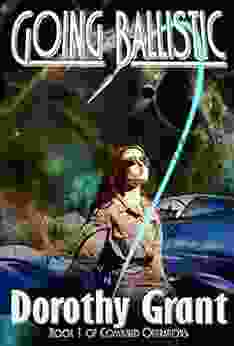
 Dan Henderson
Dan HendersonUnleash the Explosive Action of Going Ballistic Combined...
Prepare for an...

 Jeffery Bell
Jeffery BellDiscover the Controversial and Captivating "The Anarchist...
In the realm of literature, there are...
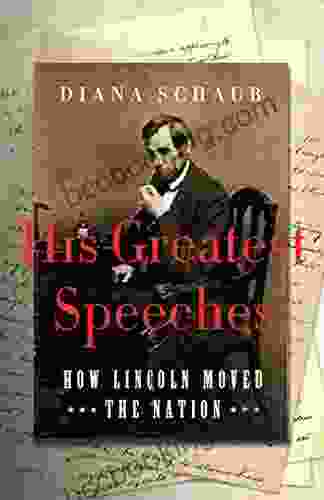
 Ryan Foster
Ryan FosterUnveiling Lincoln's Eloquence: How His Greatest Speeches...
In the annals of American...

 Jaime Mitchell
Jaime MitchellLove Radio Vinny Berry: A Journey of Heartbreak, Healing,...
Vinny Berry's...
4.6 out of 5
| Language | : | English |
| File size | : | 34070 KB |
| Text-to-Speech | : | Enabled |
| Screen Reader | : | Supported |
| Enhanced typesetting | : | Enabled |
| Print length | : | 549 pages |


